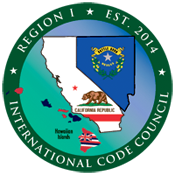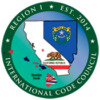In a recent episode of ICC Region I Radio, Tim Spears had an engaging conversation with Sean DeCrane. Sean’s journey from a firefighter in Cleveland to the Director of Health and Safety at the International Association of Fire Fighters (IAFF) is filled with valuable lessons and insights into fire safety and code development.
Sean DeCrane’s Journey and the Importance of Code Development
Sean DeCrane’s path into the world of code development began with a dare and a trip to Key West. His story underscores the important role that fire service professionals play in the code development process. By understanding building construction and fire codes, firefighters can significantly improve their safety and effectiveness in emergencies. Sean shared an impactful story about a firefighter’s tragic loss in Green Bay due to an early collapse of a lightweight floor system, which led to efforts to change residential codes for better fire protection.
Emerging Challenges: Lithium-Ion Batteries
One of the key topics discussed was the emerging challenge of lithium-ion batteries. These batteries are widespread in modern technology but present unique risks, such as flammable gas release and explosion hazards. Sean emphasized the need for firefighters to adapt their strategies to manage these incidents and highlighted the importance of ongoing research and
The Role of Standardized Testing and Public Education
Standardized testing and public education play pivotal roles in promoting fire safety and reducing risks associated with new technologies. Successful campaigns like the UL Fire Safety Research Institute’s “Close Your Door” demonstrate the power of public education in saving lives during fires. Ensuring that products meet safety standards through standardized testing can prevent many fire-related incidents.
Key Takeaways for Enhancing Fire Safety
- Partnerships and Relationships: Collaborating with other professionals and organizations is essential for advancing fire safety and code development.
- Research and Data: Continued research is vital to understand and mitigate the risks associated with emerging technologies like lithium-ion batteries.
- Public Education: Ongoing public education campaigns are crucial for raising awareness and promoting safe practices.
- Standardized Testing: Implementing standardized testing for products can significantly reduce fire hazards.
- Fire Service Involvement: Engaging fire service professionals in the code development process ensures practical and effective safety regulations.
Balancing Fire Safety and Affordable Housing
Another critical issue discussed was the debate over single exit stairways in mid-rise buildings. Sean argued that relying solely on the flawless performance of all safety systems is unrealistic. Multiple egress routes are important for ensuring safety during emergencies. This debate highlights the need to balance fire safety with the goal of providing affordable housing, a challenge that requires thoughtful and respectful dialogue.
Collaboration and Continuous Improvement
The episode concluded with a call to leverage technology and foster collaboration to enhance fire safety. Sean emphasized that safety standards are not obstacles but tools to protect lives. The fire service community must continually learn and adapt to emerging trends and technologies to stay ahead of potential risks.
Conclusion
Sean DeCrane’s insights on ICC Region I Radio serve as a reminder of the importance of fire safety codes and the collaborative efforts required to develop and implement them. By understanding the challenges posed by emerging technologies like lithium-ion batteries and advocating for rigorous testing and public education, we can create a safer environment for all. Stay tuned to ICC Region I Radio for more informative conversations on building and fire safety.
Where to Listen:
Tune in to this enlightening episode of ICC Region I Radio on YouTube or your favorite podcast platform (Apple Podcasts, Spotify, and iHeart Radio). Don’t miss out on this opportunity to enhance your knowledge and be part of the conversation shaping the future of fire safety.

